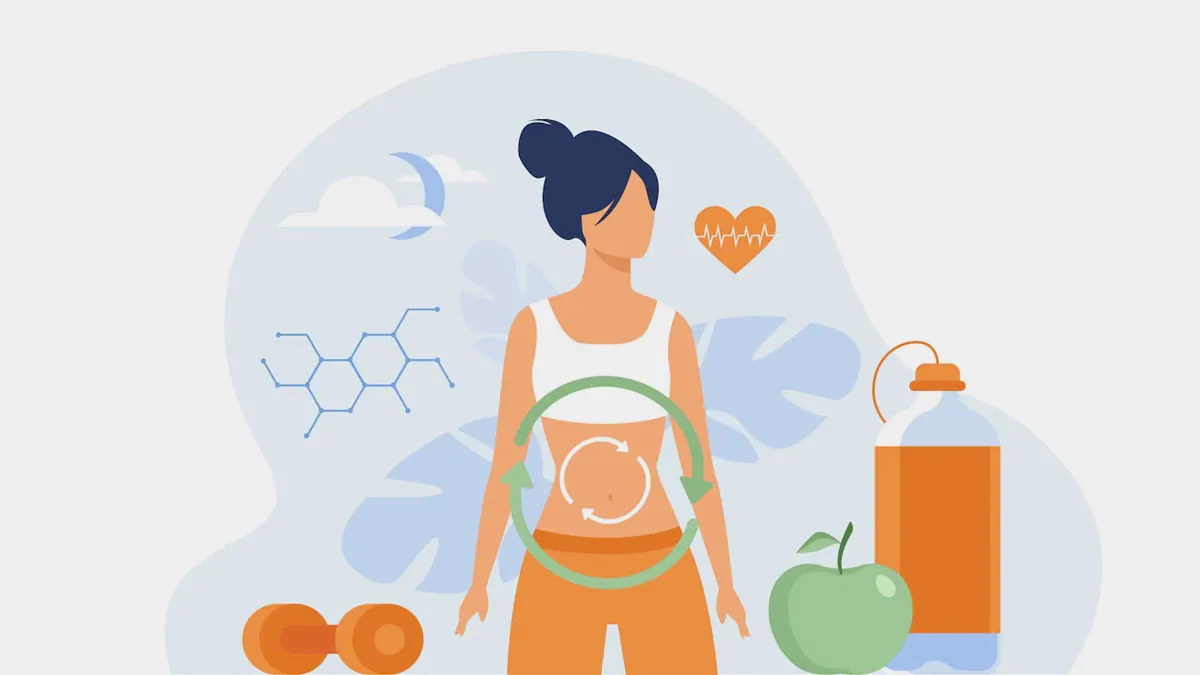
In the world of health and wellness, dietary trends come and go, each promising to unlock the secrets to a healthier you. Among the most persistent and popular has been the idea of cutting carbohydrates to improve metabolism. From keto evangelists to low-carb devotees, many swear by the metabolic magic of reducing our carb intake. But what does the science say? Can ditching bread and pasta truly rev up your internal furnace? In an exclusive interview with us, Dr. Shrey Kumar Srivastav, Senior Consultant and General Physician, Sharda Hospital - Noida, answers all our questions. Here is everything he shared with us.
Table of Content:-
Understanding Your Metabolism
First, let's clarify what we mean by "metabolism." It's not just how fast you burn calories. According to Mayo Clinic, metabolism is a complex set of chemical processes that occur in your body to maintain life. It involves:
Basal Metabolic Rate (BMR): The calories your body burns at rest to perform basic functions like breathing, circulation, and cell production.
Thermic Effect of Food (TEF): The energy your body expends to digest, absorb, and process nutrients.
Activity Energy Expenditure: The calories burned through physical activity.
When people talk about "improving metabolism," they often refer to increasing their BMR, leading to more efficient fat burning and easier weight management.
Also Read: Snack Smart: How American Pecans Can Boost Your Heart Health Naturally

Role of Carbohydrates in Metabolism
Carbohydrates are your body's primary and preferred source of energy. When you consume carbs, they are broken down into glucose, which is then used for immediate energy or stored as glycogen in your liver and muscles for later use.
Here's how carbs interact with your metabolism:
Insulin Response: When glucose enters your bloodstream, your pancreas releases insulin. Insulin's job is to shuttle glucose into your cells for energy.
Fuel for Activity: Carbs provide the readily available fuel for high-intensity exercise and brain function.
Thyroid Function: Adequate carbohydrate intake can support healthy thyroid function, and the thyroid gland plays a crucial role in regulating metabolism.
Low-Carb Premise, Insulin Sensitivity and Fat Burning
The argument for cutting carbs often centers on insulin. The theory suggests that a consistently high-carbohydrate diet leads to chronically elevated insulin levels, which can promote fat storage and potentially lead to insulin resistance. Insulin resistance is when your cells become less responsive to insulin, requiring your pancreas to produce even more, potentially creating a vicious cycle.
By significantly reducing carb intake, proponents claim you can:
Lower Insulin Levels: This could potentially reduce fat storage and encourage your body to tap into its fat reserves for energy.
Increase Fat Oxidation: When fewer carbs are available, your body shifts its primary fuel source from glucose to fat, a state known as ketosis in very low-carb diets. This leads to increased fat burning.
Improve Insulin Sensitivity: Over time, reducing the demand for insulin might make your cells more responsive to it, leading to better blood sugar control and metabolic health.

So, Can Cutting Carbs Improve Your Metabolism?
According to Dr Srivastav the answer is: possibly, but it depends.
For individuals with insulin resistance or Type 2 Diabetes: A carefully managed low-carb diet can be a highly effective strategy for improving blood sugar control, reducing insulin levels, and promoting fat loss, thereby positively impacting metabolic health.
For those looking for general weight loss: While low-carb can kickstart weight loss, the key to sustained metabolic improvement and weight management often lies in creating a calorie deficit and focusing on whole, unprocessed foods, regardless of macro distribution.
For highly active individuals: Adequate carbohydrate intake is often necessary to fuel intense workouts and optimise recovery, which indirectly supports a healthy metabolism.
It's not a one-size-fits-all solution: A healthy metabolism is a holistic endeavor. It's built on a foundation of nutrient-dense foods, regular physical activity, sufficient sleep, and stress management.
Instead of rigidly focusing on cutting carbs entirely, consider these points for optimising your metabolism:
Prioritise Complex Carbohydrates: Opt for whole grains, fruits, vegetables, and legumes over refined sugars and processed flours. These provide fiber, vitamins, and minerals that support overall health and a healthy metabolism.
Balance Your Macronutrients: Ensure you're getting adequate protein and healthy fats alongside your carbohydrates. Protein is particularly satiating and has a higher thermic effect of food.
Listen to Your Body: Pay attention to how different foods make you feel. Experiment to find what works best for your energy levels, satiety, and overall well-being.
Stay Active: Regular exercise, especially strength training, builds muscle mass, which is metabolically active and can significantly boost your BMR.
Consult a Professional: If you're considering a significant dietary change, especially if you have underlying health conditions, consult with a registered dietitian or healthcare provider. They can provide personalised guidance and ensure you're meeting your nutritional needs.
Bottomline
While cutting carbs can offer metabolic benefits for certain individuals, particularly those with insulin sensitivity issues, it's not a universal magic bullet. A sustainable, balanced approach that emphasises whole foods, mindful eating, and regular physical activity remains the most effective and holistic path to a healthy and thriving metabolism.
Also watch this video
How we keep this article up to date:
We work with experts and keep a close eye on the latest in health and wellness. Whenever there is a new research or helpful information, we update our articles with accurate and useful advice.
Current Version